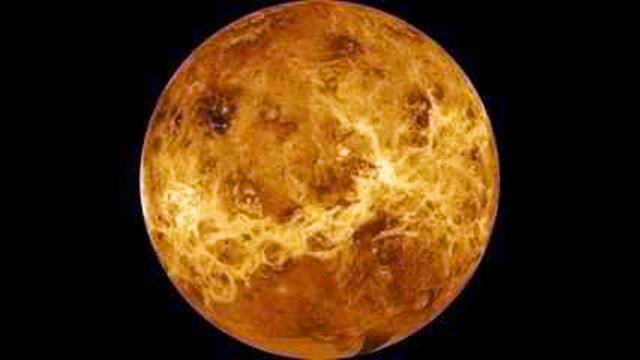
There are eight planets in the solar system. If you ask which planet is the most similar to the earth, many people will answer Venus. Yes, Venus and Earth are known as sister planets, and there are too many similarities between them. In terms of location, Venus and the earth are in the same habitable zone, and they also have the possibility of becoming a planet of life.
In terms of geological structure, the mass and volume of Venus are very close to that of the earth, which is why scientists call it the sister planet of the earth. According to its geological structure similar to that of the earth and the properties of the same habitable zone, Venus should also have various conditions for becoming a planet of life. That’s why, shortly after human beings walked out of the earth, the first target planet to be explored was Venus.
Venus is also the closest to the earth, and it will not take long for the probe to reach it. In the last century, humans have launched dozens of probes to Venus, no less than the number of probes launched to Mars later. Since scientists have launched so many probes to Mars, it shows that Venus still has a very important position in the hearts of scientists.
However, as a result, I believe that many friends know that scientists have focused on Mars, continuously launching various probes to Mars, and landing on Mars for exploration and research. After more than half a century of exploration and research on Mars, we now have a very rich knowledge of Mars.
At this time, many people will have such a question: why did scientists give up on landing to explore Venus in the last century? Some people may think that Venus has no exploration value for scientists. Is that really the case? In fact, things are far from as simple as we thought.
No matter from which aspect, the value of a planet to mankind is immeasurable, not to mention that Venus is so close to the earth. Scientists have launched dozens of probes to Venus, which is enough to show that the value of Venus in the hearts of scientists is very high. Since later gave up exploring Venus and focused on the more distant Mars, it’s not that scientists don’t want to explore Venus, but because the data returned by the probe shows that humans’ current technology is not yet capable of landing and exploring Venus, because The environment of Venus is too bad.
As the sister planet of the earth, Venus also has some conditions to breed life. According to normal logic, such a planetary ecological environment should have many similarities with the earth. Even if it does not reach the beautiful ecosystem of the earth, it should be better than that. The environment of Mars is much stronger.
But when the probe reached the orbit of Venus, the results it saw were beyond the expectations of scientists. It turns out that Venus is a purgatory planet. Whether it is the atmosphere or the surface of Venus, the environment is so bad that we are afraid. The atmosphere of Venus is very thick, 95% of which is carbon dioxide.
The super high content of carbon dioxide makes Venus’s greenhouse effect very serious. Not only does the atmosphere form an acid rain layer, but the surface temperature is also as high as 460 degrees Celsius. And because the atmosphere of Venus is too thick, coupled with the obstruction of the acid rain layer, it is difficult for the probe to see more detailed conditions of the surface of Venus through the thick atmosphere.
If you want to figure out the situation on the surface of Venus, you need to send a probe to land on Venus, but it is not easy to land in the face of the thick atmosphere. In the last century, the Soviet Venus probes made many login attempts, most of which failed. Even if some probes barely landed, their existence on the surface of Venus was very short, and the longest one did not exceed two. hour.
Although the time for the probe to land on Venus was very short, it still sent us some information about the surface of Venus. Through the returned Venus data, we saw a purgatory-like surface of Venus, full of erupting volcanoes, and a large amount of volcanic ash filled the atmosphere of Venus. Moreover, the super high temperature also turned the surface of Venus into a fiery purgatory scene.
When the probe wants to land on Venus, the first pass it faces is the thick atmosphere, and the atmosphere of Venus has very powerful lightning, which will be hit and destroyed by lightning if you are not careful. In addition to lightning, the atmosphere of Venus has a large layer of acid rain, which will also damage the detector. Even if it crosses the atmosphere and logs on to the surface, it will face damage from 90 times the high pressure and high temperature of 460 degrees Celsius.
Such a harsh environment of Venus is naturally difficult for human detectors to detect, and we can only do some research on the atmosphere of Venus at best. But in this way, it is a bit unworthy for humans. Therefore, in the end, scientists can only abandon the landing exploration of Venus and focus on Mars.
So have scientists given up on Venus and will not explore it in the future? Naturally not, as we said earlier, the position of Venus in the hearts of scientists is very important, even it is far more important than Venus. The reason for saying this is that in addition to the harsh environment of Venus, there are many extraordinary and mysterious phenomena. For example, Venus is the only planet in the solar system without a magnetic field.
You know, Venus is also a terrestrial planet, and the center of the planet may also have the same iron-nickel core as the earth’s inner core. Since it is known as the sister planet of the Earth, it should also have a very strong magnetic field, and the atmosphere of Venus is very thick. In the early days of Venus, such a thick atmosphere could not be formed without an atmosphere.
However, the real situation detected now is that Venus does not have a magnetic field. Then, did it have no magnetic field or did it disappear for some reason? Scientists believe that the second possibility is even greater. If the magnetic field of Venus disappears later, what caused the disappearance of the magnetic field?
In addition to the absence of a magnetic field, the rotation direction of Mars is also very unique. For the other seven planets, their rotation direction is the same as that of the earth. So if we stand on other planets, you will see that the sun also rises from the east. , The West landed. However, the rotation of Venus is opposite to that of other planets. If you stand on the surface of Venus, you will see the strange phenomenon of the sun rising from the west to the east.
So is the opposite property of Venus’s rotation formed naturally? Scientists think it is unlikely that the solar system formed an early nebula, and the nebula itself has a high rotation speed. Therefore, the rotation direction of the planets formed later should be the same as the rotation direction of the nebula, which we can see from the other seven planets and many asteroids.
But Venus’s rotation direction is the other way around. What is going on? Scientists believe that it may be a significant change that reversed the direction of Venus’s rotation. Moreover, the transformation of Venus into the purgatory planet like this may also be related to a major change. So what caused Venus to become like this? Is it a cosmic natural disaster or other possible man-made disasters?
It can be seen that Venus is a very mysterious existence in the solar system. If we want to unravel these mysteries, we can only land on the surface of Venus for continuous exploration. Another point is that with the continuous advancement of human technology and the continuous improvement of life cognition, some scientists even boldly speculate that there may be life on Venus.
Although the environment of Venus is very harsh, this harshness is aimed at life on earth and human beings. Life on earth basically cannot adapt to the environment on Venus, but it does not mean that some life in the universe just likes this harsh environment very much. Moreover, no matter how Venus changes, how bad it is, but because of its thick atmosphere, geological activities are also relatively active, so some conditions needed for life still exist.
There may be some special cosmic creatures, and they like a purgatory environment like Venus. Therefore, from the perspective of the basic conditions required for the birth of life, Venus also has the possibility of birth of life. To unravel these mysteries, we also need to land on the surface of Venus.
Now more than half a century has passed, and scientists have begun to plan to explore Venus again in the near future. At that time, human powerful detectors may be able to land on Venus for long-term exploration. At that time, we can see a difference. World of purgatory. The future discovery of Venus may cause a sensation in the scientific community.






